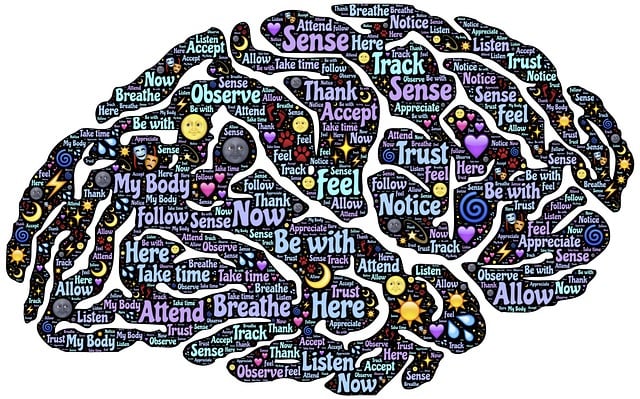Substance abuse is a complex issue marked by harmful drug or alcohol use, impacting daily functioning and well-being. Starting in adolescence, it can escalate into addiction. Understanding risks and implementing effective strategies, including therapy like cognitive-behavioral therapy (CBT) and motivational interviewing (MI), is crucial for mitigation. Lifestyle changes, stress management techniques, support groups, and family involvement further reduce risks. Comprehensive care plans integrating CBT and compassion cultivation practices ensure long-term management and prevention of substance abuse in adults.
Substance abuse poses significant risks, impacting individuals’ physical and mental health, relationships, and overall well-being. This article explores comprehensive risk reduction strategies for substance abuse, focusing on therapeutic approaches tailored for adult drug abuse. We delve into lifestyle changes, the power of support systems, long-term management techniques, and preventive measures. By understanding the complexities of substance abuse, we can equip individuals with tools to seek help, maintain recovery, and live healthier lives. Discover effective therapy for adults with drug abuse issues and explore these essential strategies for a better tomorrow.
- Understanding Substance Abuse and Its Risks
- Therapeutic Approaches for Adult Drug Abuse
- Lifestyle Changes and Support Systems
- Long-term Management and Prevention Strategies
Understanding Substance Abuse and Its Risks

Substance abuse is a complex issue that involves the harmful use of drugs or alcohol, leading to significant impairment in an individual’s daily functioning and overall well-being. It often starts as experimental behavior, especially during adolescence, but can escalate into addiction over time. Understanding the risks associated with substance abuse is crucial for developing effective risk reduction strategies. This includes recognizing the short-term and long-term consequences, such as physical health issues, mental health disorders, social problems, and legal troubles.
Therapy plays a pivotal role in addressing substance abuse, offering support and guidance to adults struggling with drug addiction. Various therapeutic approaches, including cognitive-behavioral therapy and motivational interviewing, have proven effective in helping individuals develop coping skills for stress management, enhance their decision-making abilities, and acquire conflict resolution techniques. Additionally, learning burnout prevention strategies can be vital in avoiding relapse, as chronic stress and emotional exhaustion are common triggers for substance abuse. By combining therapy with coping skill development, individuals can gain the tools needed to navigate challenges without resorting to substances, thereby reducing overall risk.
Therapeutic Approaches for Adult Drug Abuse

For adult drug abuse, therapeutic approaches play a pivotal role in effective risk reduction. One of the key strategies involves cognitive-behavioral therapy (CBT), which helps individuals identify and change negative thought patterns and behaviors associated with substance abuse. CBT also equips adults with essential coping skills to manage stress, anxiety relief being a significant benefit, thereby reducing the likelihood of turning to drugs as a crutch. Additionally, group therapy sessions facilitate peer support and shared experiences, fostering a sense of community that can deter future substance misuse.
Another powerful therapeutic method is motivational interviewing (MI), which aims to enhance an individual’s motivation to change their behavior related to drug abuse. MI encourages self-exploration and helps adults resolve ambivalence, a common barrier to recovery. Furthermore, integrating evidence-based practices into public awareness campaigns development can raise understanding of substance abuse, promote early intervention, and encourage individuals to seek help. Coping skills development through therapy not only empowers adults to resist the urge to abuse substances but also fosters long-term recovery and resilience.
Lifestyle Changes and Support Systems

Lifestyle changes and robust support systems play a pivotal role in mitigating risks associated with substance abuse. Individuals striving to overcome drug or alcohol addiction should consider adopting healthier habits, such as regular exercise, balanced nutrition, and adequate sleep. These foundational aspects contribute to improved mental well-being and can enhance the effectiveness of therapy for adults suffering from drug abuse. Incorporating stress management techniques, like mindfulness meditation or compassion cultivation practices, can also be beneficial.
Building a supportive network is equally crucial. Strong social connections and access to peer support groups offer encouragement and accountability during recovery. Moreover, involving family members in a Mental Health Policy Analysis and Advocacy initiative can foster an environment conducive to healing. By prioritizing these lifestyle changes and support systems, individuals engage in proactive strategies that complement professional therapy for substance abuse treatment.
Long-term Management and Prevention Strategies

Long-term management and prevention strategies for substance abuse are crucial in mitigating risks and fostering recovery. One effective approach is integrating therapy for adults with drug abuse into comprehensive care plans. These therapeutic interventions, such as cognitive-behavioral therapy (CBT), focus on addressing underlying emotional and psychological factors that contribute to substance misuse. By improving emotional regulation skills and trauma support services, individuals can develop healthier coping mechanisms, enhancing their ability to prevent relapse.
Additionally, compassion cultivation practices have emerged as valuable tools in these strategies. They encourage self-compassion and empathy, enabling individuals to navigate challenging emotions without resorting to substance abuse. Sustaining recovery requires a holistic approach that combines therapy, emotional support, and compassionate mindset training for long-lasting positive outcomes.
In addressing substance abuse, a multifaceted approach is essential. While understanding the risks and their underlying causes is crucial, therapeutic interventions like those tailored for adult drug abuse play a pivotal role in recovery. Integrating lifestyle changes and robust support systems further strengthens this process. Additionally, implementing long-term management strategies and preventive measures can significantly reduce the likelihood of relapse, fostering sustainable well-being for individuals recovering from substance abuse. For effective care, consider combining these evidence-based methods with professional guidance tailored to individual needs.














